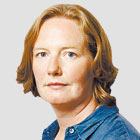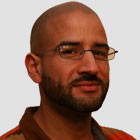Why Conservatives failed the test on Islamic schools
Conservative Party officials made two basic errors in their attack on two schools said to be run by a radical Islamic group, it emerged yesterday.
During Prime Minister's Questions in the House of Commons on Wednesday and in briefings afterwards the Conservatives claimed there was no evidence that the schools had been registered or inspected by Ofsted, the education standards watchdog; they also said the schools had received money from an anti-terrorism fund. But yesterday the claims were beginning to unravel. The most obvious mistake was the allegation that they appeared not to have been registered or inspected.
In fact, one of the two schools – in Slough, Berkshire – had posted a glowing commendation from Ofsted on its website. The report was easily accessible by Googling the Islamic Shakhsiyah Foundation, and its veracity could be confirmed with Ofsted.
It praised the school for its "broad and balanced curriculum" and for its commitment to the "spiritual, moral, social and cultural development" of its 55 four- to 10-year-old pupils.
The second error, over the allegation that state finance from a fund designed to combat terrorism was being channelled into an extremist school dedicated to the overthrow of Western culture, was perhaps more serious.
The waters here were slightly muddier, although the Conservatives were mistaken again. Money from a government fund was paid to both schools – the second is in Haringey, north London – but the £113,000 concerned came from a fund designed to promote nursery education and distributed by local councils; the fund just happened to have the same name, Pathfinder, as the anti-terrorist fund.
Haringey council suspended funding when the controversy over the running of the two schools broke a month ago. An official inquiry has found "no evidence to suggest inappropriate content or influence in the school".
Slough council said it was satisfied with its school, citing the Ofsted report in the school's defence.
A third allegation concerned the extent of Hizb ut-Tahrir's involvement with the school. The Government has faced pressure to ban the organisation, which supports "Muslim liberation", for alleged extremist views.
David Cameron, the Conservative Party leader, told the House of Commons: "Two schools have been established by an extremist Islamist foundation, the ISF, which is a front organisation for Hizb ut-Tahrir." He added: "Two of its four trustees are members of Hizb ut-Tahrir and the headteacher and proprietor of one of the schools [in Slough] are members of Hizb ut-Tahrir."
Farah Ahmed, the head in question, told the BBC she was not a member. The proprietor of the Slough school, Yusra Hamilton, who is the wife of a Hizb ut-Tahrir member, has since resigned as a trustee of the school.
The Haringey school has told the local council it no longer has links with "any of the individuals alleged to have connections with Hizb ut-Tahrir".
Renouncing Islamism: To the brink and back again
A generation of British Islamists have been trained in Afghanistan to fight a global jihad. But now some of those would-be extremists have had a change of heart. Johann Hari finds out what made them give up the fight
Ever since I started meeting jihadis, I have been struck by one thing – their Britishness. I am from the East End of London, and at some point in the past decade I became used to hearing a hoarse and angry whisper of jihadism on the streets where I live. Bearded young men stand outside the library calling for "The Rule of God" and "Death to Democracy".
In the mosques across the city, I hear a fringe of young men talk dreamily of flocking to Afghanistan to "resist". Yet this whisper never has an immigrant accent. It shares my pronunciations, my cultural references, and my national anthem. Beneath the beards and the burqas, there is an English voice.
The East End is a cramped grey maze of council estates, squashed between the glistening palaces of the City to one side and the glass towers of Docklands to the other. You can feel the financial elites staring across at each other, indifferent to this concrete lump of poverty dumped in-between by the forgotten tides of history. This place has always been the swirling first stop for immigrants to this country like my father – a place where new arrivals can huddle together as they adjust to the cold rain and lukewarm liberalism of Britain.
The Muslims who arrive here every day from Bangladesh, or India, or Somalia say they find the presence of British Islamists bizarre. They have come here to work and raise their children in stability and escape people like them. No: these Islamists are British-born. They make up 7 per cent of the British Muslim population, according to a Populous poll (with the other 93 percent of Muslims disagreeing). Ever since the 7/7 suicide bombings, carried out by young Englishmen against London, the British have been squinting at this minority of the minority and trying to figure out how we incubated a very English jihadism.
But every attempt I have made up to now to get into their heads – including talking to Islamists for weeks at their most notorious London hub, Finsbury Park mosque, immediately after 9/11 – left me feeling like a journalistic failure. These young men speak to outsiders in a dense and impenetrable code of Koranic quotes and surly jibes at both the foreign policy crimes of our Government and the freedom of women and gays. Any attempt to dig into their psychology – to ask honestly how this swirl of thoughts led them to believe suicide bombing their own city is right – is always met with a resistant sneer, and yet more opaque recitations from the Koran. Their message is simple: we don't do psychology or sociology. We do Allah, and Allah alone. Why do you have this particular reading of the Koran, when most Muslims don't? Because we are right, and they are infidel. Full stop. It was an investigatory dead end.
But then, a year ago, I began to hear about a fragile new movement that could just hold the answers we journalists have failed to find up to now. A wave of young British Islamists who trained to fight – who cheered as their friends bombed this country – have recanted. Now they are using everything they learned on the inside, to stop the jihad.
Seventeen former radical Islamists have "come out" in the past 12 months and have begun to fight back. Would they be able to tell me the reasons that pulled them into jihadism, and out again? Could they be the key to understanding – and defusing – Western jihadism? I have spent three months exploring their world and befriending their leading figures. Their story sprawls from forgotten English seaside towns to the jails of Egypt's dictatorship and the icy mountains of Afghanistan – and back again.
US deports Yusuf Islam over claims that he supports terrorist groups
By Maxine Frith Social Affairs Correspondent
Yusuf Islam, the former pop singer known as Cat Stevens, was deported from the United States yesterday after immigration officials said he was on a terrorism list.
Mr Islam, a Muslim convert, was on a flight to Washington when the FBI ordered the plane to divert to Maine, 600 miles away, on the grounds that he was a security threat. Mr Islam, 56, and his 21-year-old daughter were marched off the plane by FBI agents. Within hours, he was deported to Britain.
A spokesman for the US Department of Homeland Security said Mr Islam was on the "watch list" because of his "known associations and financial support to organisations believed to be aiding terrorism". Officials said intelligence reports suggested he had given money to Hamas.
The Muslim Council of Britain (MCB) reacted angrily to the singer's deportation and warned that it could wreck the "bridge building" between the West and the Islamic world.
Muhammad Abdul Bari, deputy secretary general of the MCB and a friend of Mr Islam, said: "Yusuf is known as one of the most moderate and reasonable Muslims who does a lot of work for charity and campaigns for peace. I cannot imagine how he came to be on such a list. This is a slap in the face for the bridge building between the communities which we have all been working for."
Mr Islam became a Muslim in 1976. He has condemned the 11 September 2001 terrorist attacks and campaigned against the war in Iraq.
In 2000, he was deported from Israel after the authorities there claimed he had donated money to Hamas, allegations that he vehemently denied.
Mr Islam's name is believed to have been added to the US list only recently, and friends say he was not aware that he was regarded as a security threat.
He had visited the US in May with no problems, and had been allowed to board the United Airlines London to Washington flight on Tuesday by British immigration officials.
His status on the list was only discovered after the flight had left Heathrow with 280 passengers on board, including members of the rock band Marillion. As the Boeing 747 neared its destination, passengers were told the flight was being diverted to Bangor, Maine, because of bad weather.
Marillion's singer, Steve Hogarth, said: "After about 10 minutes, the captain made another announcement saying it was in fact an FBI security alert. I then met a security guard who said the two people escorted off were Cat Stevens and his daughter. I was stunned. He is a pacifist and a great songwriter."
Mr Islam's daughter was allowed to remain, and the plane continued to Dulles airport, while he was sent back to Britain. A Foreign Office spokeswoman said: "The reasons for his detention and return are obviously a matter for the US and not for us."
Mr Islam was born Steven Demetre Georgiou to a Greek Cypriot father and Swedish mother. He found fame in the 1970s with hits such as "Morning Has Broken" and "Wild World", and underwent his religious conversion after he nearly drowned while swimming off the Malibu coast in 1976. After the World Trade Centre attacks, he issued a statement saying: "No right-thinking follower of Islam could possibly condone such an action. The Koran equates the murder of one innocent person with the murder of the whole of humanity."



